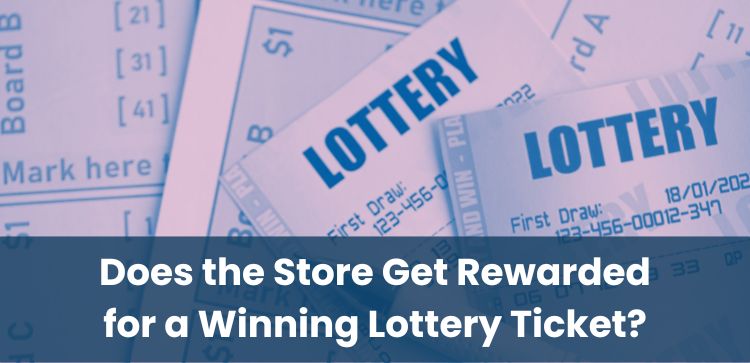
Most people focus on the ticket holder when a jackpot is won, but what about the shop where the winning ticket was bought? Many wonder whether the retailer receives anything in return.
This blog post explains how selling a winning ticket might affect a store, including whether shops receive commission or bonuses, what limits apply, and what changes if the win happens online. It also looks at whether a big win might influence a shop’s visibility or visitor numbers.
Read on to learn more.
Introduction: How Lottery Wins Affect Stores
When a large prize is won, the retailer might see a brief period of attention. Local media may name the shop, nearby residents might visit, and regulars often discuss the event.
Financially, stores receive commission on ticket sales, and in some cases, a small bonus for selling a top-prize ticket. The exact amounts are set by the lottery operator and form part of the retailer’s agreement. For most shops, these payments are a modest addition to normal trading rather than a major source of income.
Retailers must follow UK rules, including age checks and clear information for customers about playing responsibly, which is provided at the counter and online by the operator.
So, what does that mean in terms of actual payments to the store?
Does the Store That Sells a Winning Lottery Ticket Get Money?
In practice, these retailer bonuses tend to be modest but appreciated. For example, a shop that sells a jackpot-winning ticket might receive a few thousand pounds as a one-off payment. This recognition may also bring positive publicity, potentially boosting sales and customer traffic for a time.
Commission Payments for Selling Winning Tickets
In the UK, retailers receive a standard commission on every National Lottery ticket they sell. This commission is paid whether the ticket wins or not and is treated like any other retail income.
If a shop sells a ticket that wins a large prize, such as a jackpot, the operator may pay an additional bonus to the retailer. The size and terms of any bonus are set out by the operator and are modest in comparison to the player’s prize. They are intended to acknowledge the sale rather than alter the retailer’s finances in a major way.
These arrangements help maintain the network of outlets across the country. They are routine business payments rather than headline sums.
Are There Limits on How Much a Store Can Earn From Lottery Sales?
Retailers earn a set percentage commission for each ticket sold, and any bonus for selling a winning ticket is determined by the operator. The amounts are defined in the retailer agreement, may change over time, and are not linked to the size of the player’s prize.
This approach keeps payments consistent for shops and transparent for the operator. It also means that, while lottery sales may be a useful addition for a store, they do not replace regular retail income. The system operates under UK regulations, which include clear terms for retailers and player protections.
All of this covers in-store sales. What about a winning ticket bought online?
What Happens If a Winning Ticket Is Bought Online Instead of In-Store?
When a ticket is purchased through an official website or app, there is no retailer involved, so no shop receives commission or a bonus. The operator handles the sale, prize validation and payment directly with the player.
Online accounts include tools to help customers manage how they play, such as spend settings and reality checks, along with clear information about support services. Whether someone buys in person or online is simply a matter of preference; the same rules and protections apply.
Payments are only part of the story, of course. Many readers want to know whether selling a jackpot ticket changes a shop’s profile.
Does Selling a Jackpot Ticket Affect a Store's Reputation or Footfall?
Local press might run a story, the store could display a small notice, and curious customers may visit to see where the ticket was sold. This may create a short-term increase in visits and local conversation.
Over time, most stores return to their usual patterns of trade. Any ongoing benefit usually comes from everyday factors such as location, service and stock, rather than a single ticket sale. Some shops find the story provides a friendly talking point with customers for a while.
Retailers should continue to follow all relevant standards, including providing clear information for customers and completing age verification at the till. The main purpose of lottery sales remains supporting good causes, with retailers receiving modest, defined payments for offering the service.
In short, a jackpot sale might bring a brief increase in attention and a small financial thank you, but it does not fundamentally change a store’s business.
If you choose to participate in a lottery draw, always do so with responsible gambling practices in mind, and never spend more than you are prepared to lose. Remember that lottery games are forms of gambling and outcomes are entirely random. Playing should be viewed as a form of entertainment, not a way to earn money or resolve financial difficulties.
If you ever feel unsure about your play or notice it affecting other areas of your life, consider taking a break or setting limits on how much time and money you spend. Support is available through confidential, independent services such as GambleAware.
Always check that you meet the legal age requirement to play, follow official guidance from licensed operators, and make informed decisions about your participation.
*All values (Bet Levels, Maximum Wins, etc.) mentioned in relation to this game are subject to change at any time. Game features mentioned may not be available in some jurisdictions.
**The information provided in this blog is intended for educational purposes and should not be construed as betting advice or a guarantee of success. Always gamble responsibly.
